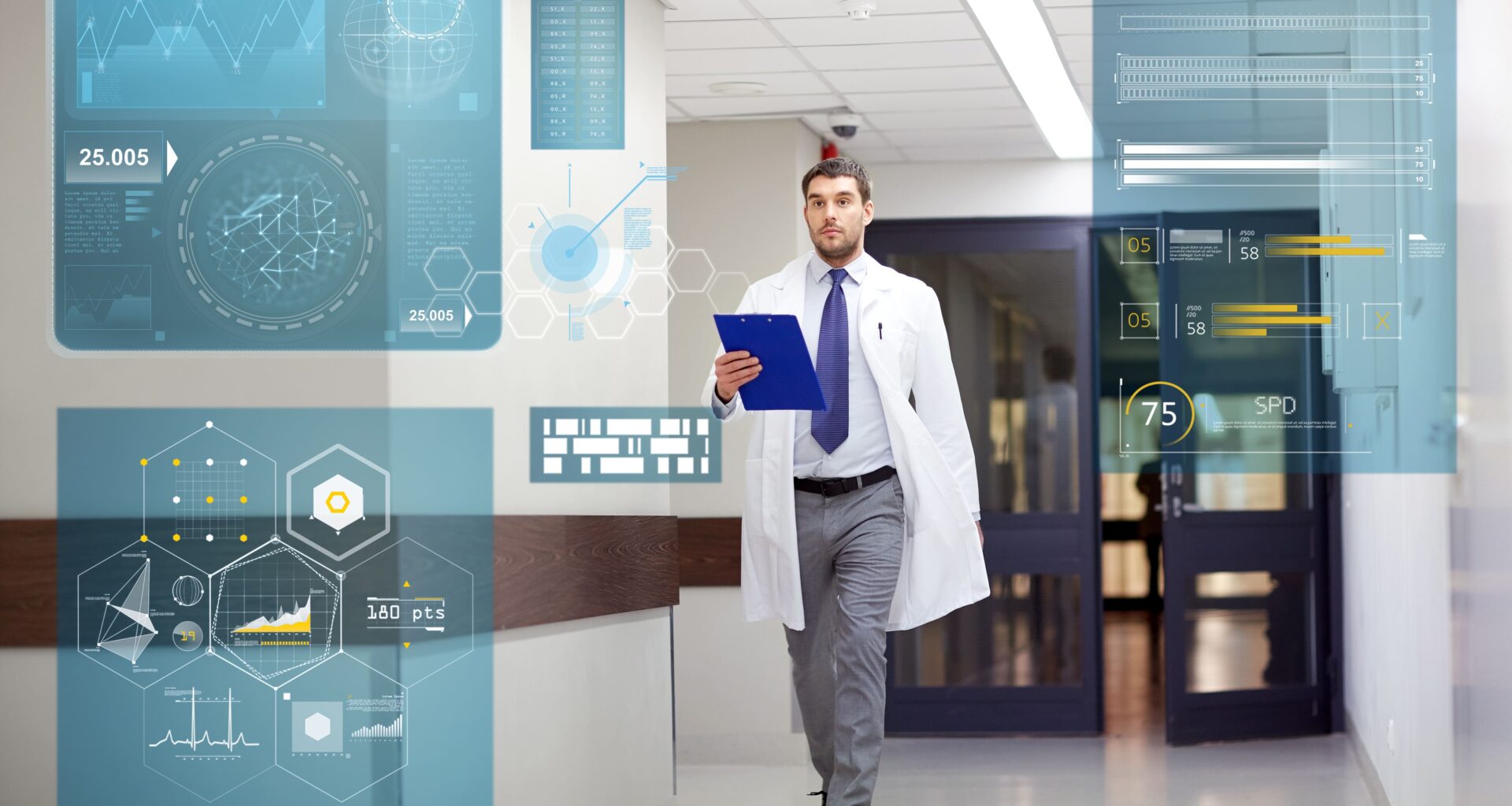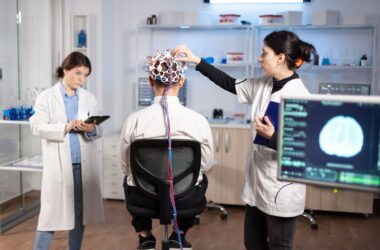The healthcare landscape is on the cusp of a profound transformation fueled by the biomedical data revolution. This unprecedented surge in information – encompassing everything from an individual’s genetic makeup to their daily activity levels captured by wearable devices – fundamentally changes how we approach health and disease.
At the forefront of this exciting shift lies precision medicine, a rapidly evolving field that promises to revolutionize healthcare by tailoring treatments and preventative measures to an individual’s unique biological makeup and health history.
For decades, traditional medicine has largely relied on a “one-size-fits-all” approach. While this strategy has undoubtedly saved countless lives, it also has its limitations. These limitations can manifest in several ways:
- Ineffective Treatments: A significant portion of patients prescribed medications experience minimal benefit or even suffer from side effects because the medication doesn’t target the underlying cause of their specific condition.
- Missed Opportunities for Prevention: Traditional medicine often struggles to spot individuals at high risk for developing certain diseases until symptoms arise. This delays preventative measures that could significantly improve health outcomes.
Here’s where precision medicine steps in. By leveraging the power of the biomedical data revolution, precision medicine aims to overcome these limitations and deliver a more personalized approach to healthcare. This approach hinges on two key data sources:
- Omics Data: This encompasses a vast array of information about a patient’s biology, including his genes (genomics), gene expression (transcriptomics), proteins (proteomics), and the metabolites present in your body (metabolomics). By analyzing omics data, researchers can achieve an extensive understanding of the underlying mechanisms of disease in each individual.
- Electronic Health Records (EHRs): These digital records, containing a patient’s medical history, diagnoses, medications, and other vital information, provide a comprehensive picture of his past health experiences.
By harnessing the combined power of omics data and EHR information, precision medicine can unlock a new era of healthcare – one where disease risk prediction becomes more accurate, treatment plans are tailored to a patient’s unique biology, and preventative measures can be implemented before symptoms even appear.
In the following sections, we’ll delve deeper into the exciting possibilities that the biomedical data revolution unlocks for precision medicine, explore the challenges that need to be addressed, and paint a picture of a future where personalized healthcare empowers patients to take control of their well-being.
Demystifying Omics
Omics is a powerful tool in the biomedical data revolution that is driving precision medicine advancements. In essence, it refers to the study of biological molecules on a massive scale, including a patient’s entire genetic makeup, the activity of those genes, and the proteins they produce – all at once.
This comprehensive analysis, including various types of omics data, provides a much clearer picture of the intricate workings of patients’ bodies and how slight variations can influence their health and disease susceptibility. Let’s delve into some key types of omics data that contribute to the field of precision medicine:
- Genomics is the foundation of omics, focusing on analyzing the entire genetic makeup or genome. The genome acts as a blueprint, containing the instructions for building and maintaining the body. By studying gene variations, scientists can identify potential risk factors for certain diseases, paving the way for more targeted healthcare solutions.
- Transcriptomics goes further than genomics. It analyzes which genes are actively producing proteins in cells at a given time. This dynamic information provides valuable insights into cellular processes and how they might be altered in disease states, ultimately aiding in the development of more effective treatment plans.
- Proteomics identifies and quantifies the proteins in cells, tissues, or fluids. Studying variations in the protein profile can reveal potential biomarkers for disease and help researchers understand how specific drugs might interact with the cellular machinery, leading to the development of more personalized medications.
The power of omics lies in its ability to reveal individual variations within biological molecules, such as subtle changes in DNA, gene expression, or protein combinations. These variations can significantly impact health, influencing disease predisposition and medication response. By analyzing omics data alongside electronic health records, healthcare professionals can develop a more targeted approach to personalized medicine, potentially leading to earlier disease detection, more effective treatments, and improved overall health.
Beyond The Genes – Electronic Health Records
While omics data offers a glimpse into your biological blueprint, it’s only part of the story. To truly understand your unique health journey, we need to consider another critical piece of the biomedical data revolution puzzle: electronic health records (EHRs). In essence, EHRs are digital versions of your traditional paper medical charts. They securely store a wealth of information about your health, including:
- Medical History: This encompasses past illnesses, surgeries, hospitalizations, and any relevant details about your health journey.
- Diagnoses: All your diagnosed medical conditions are documented in your EHR, providing a comprehensive picture of your overall health status.
- Medications: A complete list of medications you’re currently taking, dosages, and prescribing physicians is readily available in your EHR.
- Immunization Records: Your EHR keeps track of all the vaccinations you’ve received throughout your life, ensuring you’re up-to-date on essential immunizations.
- Lab Results: Test results from blood work, imaging scans, and other diagnostic procedures are all stored in your EHR, creating a timeline of your health markers.
- Allergies: Any allergies you have, whether to medications, foods, or environmental factors, are documented in your EHR, aiding in safe and effective treatment planning.
By capturing this comprehensive data collection, EHRs paint a detailed picture of your health. This information is invaluable for healthcare professionals in the context of precision medicine.
Here’s how EHR data empowers a more personalized approach to your healthcare:
- Personalized Risk Assessment: By analyzing your medical history and diagnoses within your EHR, doctors can identify potential risk factors for future health problems and implement preventative measures tailored to your specific needs.
- Informed Treatment Decisions: Accessing a complete medication list in your EHR allows healthcare professionals to avoid prescribing medications that may interact poorly with existing medications or exacerbate allergies, leading to safer and more effective treatment plans.
- Improved Care Coordination: With EHRs readily accessible across different healthcare settings, specialists and primary care physicians can share information seamlessly, ensuring a more coordinated approach to your care.
Why Analyze Omics And EHRs Together?
Here’s how analyzing vast amounts of data, including omics data and electronic health records can empower a more personalized approach to healthcare:
Unlocking Personalized Disease Risk Prediction
By analyzing your omics data, researchers can recognize genetic variations that may predispose the patients to certain diseases. This information allows for proactive measures, such as lifestyle modifications or preventive screenings, to be implemented before symptoms even appear.
Imagine: A simple blood test revealing your likelihood of developing type 2 diabetes, allowing you to make dietary and exercise adjustments to potentially prevent the disease altogether.
Identifying Potential Drug Targets And Tailoring Treatment Plans
Omics data analysis can pinpoint the specific biological pathways involved in your disease. This knowledge empowers researchers to develop drugs that target these pathways more effectively, potentially leading to improved outcomes and reduced side effects.
For instance: Analyzing a tumor’s genetic makeup could reveal a specific mutation that a newly developed drug targets precisely, maximizing its effectiveness while minimizing harm to healthy cells.
Stratifying Patients For Optimal Treatment Selection
Combining omics data with EHR information allows healthcare professionals to categorize patients into subgroups based on their unique biological profiles and response histories. This data-driven approach enables patients to receive the most effective treatment for a specific condition.
Think about: Instead of a trial-and-error approach with different medications, your doctor can pinpoint the one most likely to be successful for you based on your omics data and how similar patients have responded in the past.
The Challenges And Considerations
While the potential of the biomedical data revolution is undeniable, challenges remain. Managing and analyzing the vast volume of omics and EHR data requires robust infrastructure and advanced computational tools. Additionally, maintaining data privacy and security is paramount. Ethical considerations regarding data ownership and access also need to be addressed.
The Future Looks Bright
Despite the challenges, the ongoing advancements in data analysis, artificial intelligence, and cloud computing pave the way for a future where the insights gleaned from the biomedical data revolution are seamlessly integrated into clinical practice. Imagine a world where healthcare solutions are tailored to your unique biology, leading to more effective treatments, fewer side effects, and a proactive approach to your well-being.
The biomedical data revolution is already transforming healthcare, and its potential to usher in a new era of personalized medicine is immense. As research progresses and ethical considerations are addressed, the future of healthcare holds the promise of truly individualized care, empowering patients to take charge of their health and well-being.
[Related Blog: Big Data In Healthcare – Transforming Diagnosis & Treatment]











